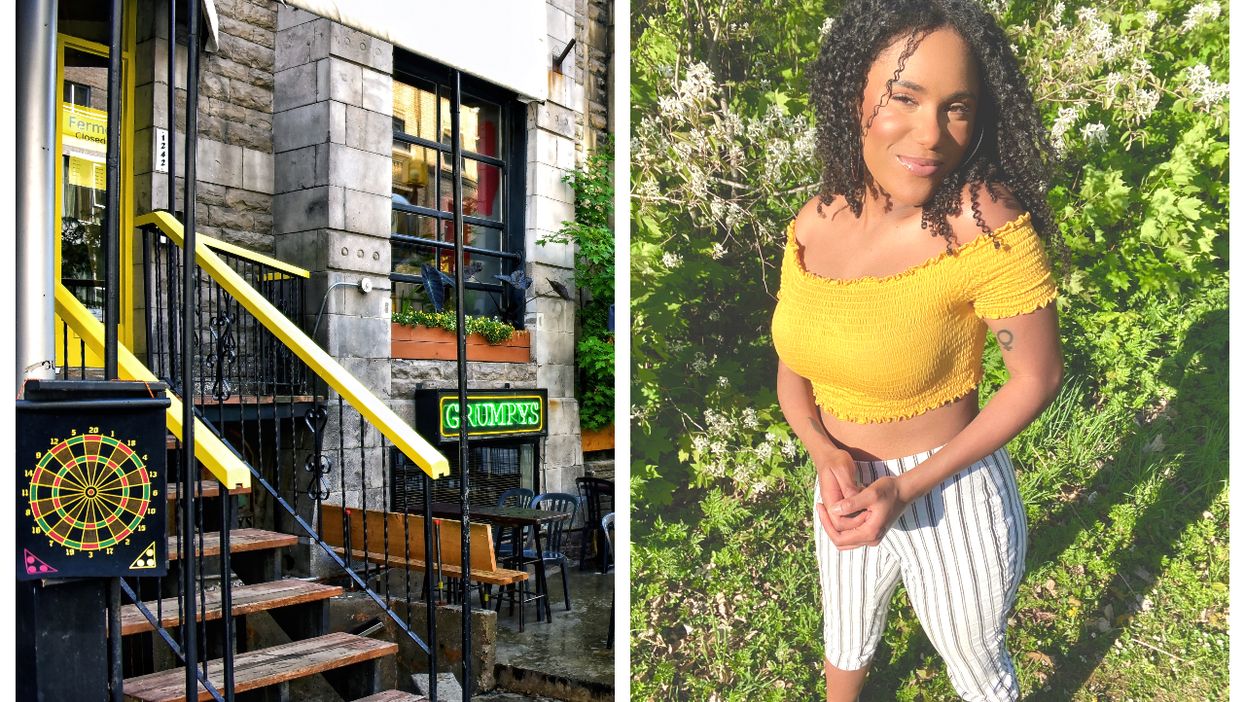A Disability Rights Activist Called Montreal 'One Of The Least Accessible Cities'
Montreal is a hotbed of ableism, especially when it comes to nightlife, says Alicia-Ann Pauld.
"In Montreal, one of the things that is most inaccessible, in my opinion, is nightlife," said the 23-year-old Concordia University student. "Things like bars, nightclubs, strip clubs, they are just so inaccessible for people with reduced mobility."
Editor's Choice: Here's What You'll Be Able To Do When Montreal Becomes A Yellow Zone On Monday
Pauld, who has muscular dystrophy, wants the city's vaunted party scene to be way more accessible for disabled people, and even went so far as to call Montreal "one of the least accessible cities in North America," in a recent Disability After Dark podcast episode, though she admitted to not having travelled much.
"But the reason why I said that is because I honestly cannot imagine a city being worse," the writer and disability rights activist told MTL Blog.
Boulevard Saint-Laurent 'is just an absolute nightmare'
For disabled people, even making it downtown can be a struggle because not all metro stations are accessible.
Then they might not be able to enter their chosen establishment because it does not have a usable ramp or the business might be located up a flight of stairs, she said.
And boulevard Saint-Laurent, arguably the city's best party street, is also one of its least accessible, said Pauld.
"That street is just an absolute nightmare. Not a thing on that street is accessible," she said, listing a number of multi-level clubs and bars on the Main that don't have elevators.
She called Montreal's bars and clubs: "gendered and sexualized social spaces and when they're inaccessible we make it difficult for disabled people, and people with reduced mobility, to be social, sexual, gendered beings, which everybody else gets to be, because they get to go to these places way more easily than we do."
Pauld did give a shout-out to three establishments that she said are accessible including Bar Ganadara on rue Sainte-Catherine, "great Korean food, great drinks," and the Atwater Cocktail Club on avenue Atwater.
Disabled people have just as much a desire for drink, drugs, and inclusion as anybody else, said Pauld.
"We're going to need people to understand that disabled people belong in every type of space," she said. "We're going through the same stuff. We have the same sexual awakenings and we have the same desires to meet people, and to make friends, and to be in relationships, and to drink, and do drugs, or to go out and party, like we want to go out and do all these things but because there's this belief that we don't, we aren't included in those spaces."
Disabled people have all those same needs, she said, "and to pretend that people with disabilities don't is obviously wrong but also really violent because it's literally stripping away from us something that is quite vital in terms of our development and our overall happiness as individuals."
How can Montreal become more inclusive?
Montreal is full of old buildings that can be less than friendly to people with disabilities.
And though the Régie du bâtiment du Québec, which controls the laws regarding the accessibility of buildings, adheres to a grandfather clause exempting some historical structures from having to comply with more current regulations, Pauld would like to see a renewed commitment from the city to make things more inclusive.
"I know that a lot the charm that is Montreal is how old the buildings are and while I understand that in terms of the architecture, I think it's important to understand this city should not keep its people out," said Pauld.
"We shouldn't allow the city to discriminate against those that live in it or the tourists who want to visit it," she continued.
"Every single building should have to be accessible by law."
According to the Politique gouvernementale pour accroître la participation sociale des personnes handicapées, Quebec had more than 750,000 disabled persons in 2006, which was 10% of the population.

